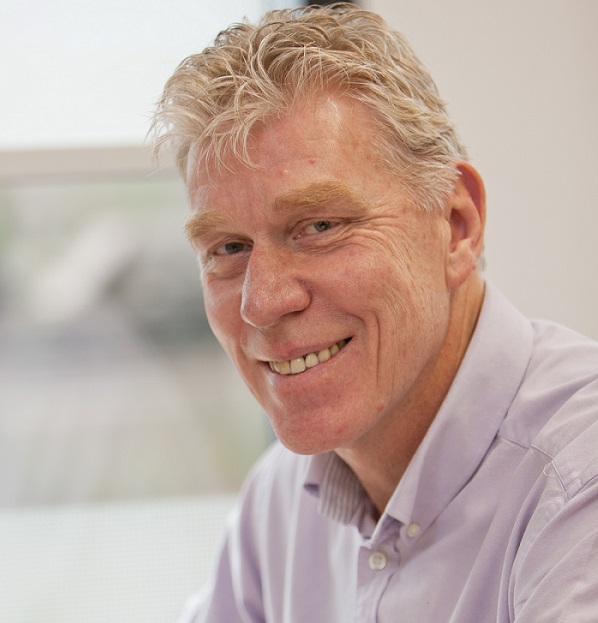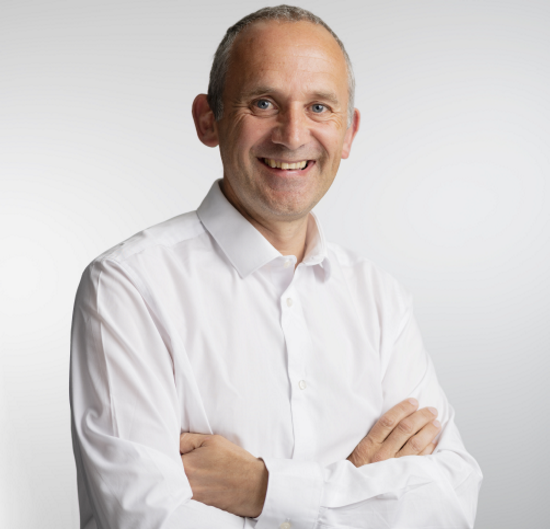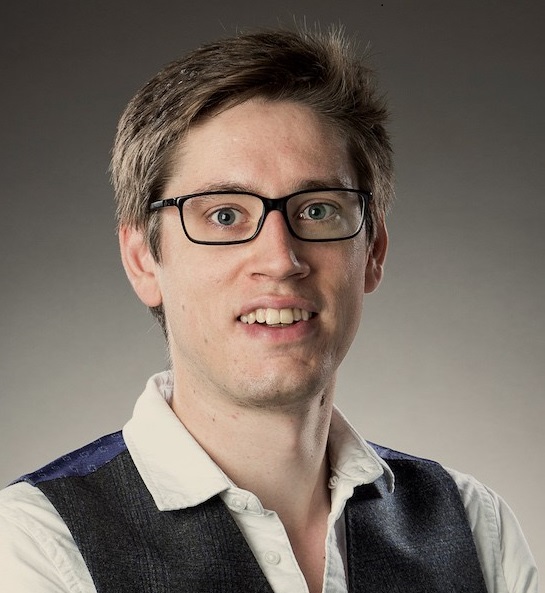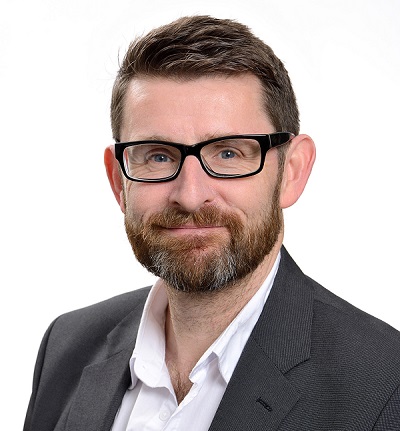Links to external sources may no longer work as intended. The content may not represent the latest thinking in this area or the Society’s current position on the topic.
Industry Fellows College networking event

This Industry Fellows College networking event takes place at the Royal Society on 24 November from 9am-5pm.
This conference will address cross-sector collaborations by bringing together past and current holders of a Royal Society Industry Fellowship and their collaborators.
Participants will have the opportunity to discuss issues and successes, and hear about the wider work of the Society. Training courses will also be offered to participants.
This year saw the pilot of the Royal Society Industry summer placements, with students completing a placement with an Industry Fellow. We will be joined at this event by our summer students, who will present their work.
As well as past and current Industry Fellows, there will be a limited number of places at this event for others interested in the relationship between industry and academia. If you would like to attend, please email industry@royalsociety.org with a short explanation as to why you are interested in the event. As places are limited, we cannot guarantee that there will be a space available.
Organisers
Schedule

Sir Simon Campbell CBE FMedSci FRS, Royal Society Science, Industry and Translation Committee Co-Chair

Sir Simon Campbell CBE FMedSci FRS, Royal Society Science, Industry and Translation Committee Co-ChairSimon Campbell is an innovative medicinal chemist who has made notable contributions to the pharmaceutical industry. Beginning his career in academia in North and South America, Simon next moved to Pfizer at Sandwich in the United Kingdom where over 26 years he was directly involved in the discovery of three of the world’s best-selling prescription drugs. Two of the drugs that he invented, doxazosin and amplodipine, are treatments for high blood pressure — with both considered ‘best in class’ with respect to therapeutic profile. Simon also played a leading role in the discovery of sildenafil, more commonly known as Viagra. All three continue to be highly successful commercial drugs. Since his retirement from Pfizer in 1998, Simon has been President of the Royal Society of Chemistry (from 2004 to 2006) and acts as a scientific consultant to industry, charities and governments around the world. He received honorary Doctor of Science degrees from Birmingham, Kent and St Andrews. Simon received a CBE for services to science in 2006 and a knighthood for services to chemistry in the 2015 New Year Honours list. |

Keith Errey, CEO, Isansys Lifecare Ltd

Keith Errey, CEO, Isansys Lifecare LtdKeith Errey is the CEO and co-founder of Isansys and is a strong advocate of digital and data driven methods in healthcare. A serial entrepreneur with a long practical interest in technology businesses that originate from translational research, Keith has wide experience in several industries including mining, telecommunications, instrumentation and medical devices, and a life-long commitment to education, having worked both as a schoolteacher and university lecturer. He has physics degrees from Oxford University and the University of New South Wales. Isansys Lifecare, the leader in new generation wireless patient monitoring systems, has created the Patient Status Engine, a remarkable patient monitoring platform which collects and analyses patients’ vital signs and other relevant data, alerts doctors and nurses if a person’s health is deteriorating and provides a robust and auditable record of the patient’s healthcare journey. |

Dr Ian Campbell, Chief Business Officer, LifeArc

Dr Ian Campbell, Chief Business Officer, LifeArcIan is the Chief Business Officer at LifeArc, accelerating the translation of life sciences innovation into benefits for patients. Ian was previously Executive Chair at Innovate UK, and before that Director for Health and Life Sciences. Prior to Innovate, Ian spend 15 years in in a variety of executive management and commercial roles, developing products across life sciences and diagnostics, including as Chief Executive of Arquer Diagnostics, a company developing and commercialising immunoassay diagnostics tests for cancers of the urogenital tract. A graduate of the University of Glasgow, Ian holds a PhD in Biochemistry. |

Professor Christopher A. Reynolds, University of Essex

Professor Christopher A. Reynolds, University of EssexProf Christopher A Reynolds studied chemistry at St Andrews University, worked for British Steel as a research chemist for 3 years, and then returned to St Andrews to do a PhD in computational chemistry applied to cancer research. Chris was a postdoc in the Physical Chemistry Laboratory at Oxford University under Graham Richards who championed the benefits of collaborating with fellow scientists in the pharmaceutical industry. Chris was appointed as a lecturer in chemistry at the University of Essex and his now a professor in Biological Sciences. His research involves the development and application of computational chemistry methods to problems in structural Biology, with a focus on the structure, function and dynamics of G protein-coupled receptors. He is delighted to be paired with Heptares Therapeutics, whose main interest is the structure-based design of drugs that act on G protein coupled receptors 
Professor Guangtao Fu

Professor Guangtao FuProfessor Guangtao Fu is a professor of water intelligence at the Centre for Water Systems at the University of Exeter and a Turing fellow at the Alan Turing Institute, the institute for data science and artificial intelligence. He is currently a fellow of the International Water Association (IWA) and was a Royal Society Industry Fellow working with Northumbrian Water Limited (2017-2022). His research focuses on developing and applying new computer models, data analytics and artificial intelligence tools to tackle water challenges in water resources management, water supply resilience, network leakage, flood risk and resilience, sewer blockage, urban stormwater and wastewater management. Guangtao has a Bachelor's and Master's in Hydraulic Engineering, both from Shandong University, and a PhD in Water Resources Engineering from Dalian University of Technology, China. He worked as a researcher at the University of Bristol and Imperial College London before joining the University of Exeter. He is currently serving as an associate editor for the ASCE Journal of Water Resources Planning and Management and H2Open Journal, and is an editorial board member for Hydrology Research and Proceedings of the Royal Society A: Mathematical, Physical and Engineering Sciences. 
Professor Neill Campbell

Professor Neill CampbellNeill Campbell is a Royal Society Industry Fellow and Professor of Visual Computing and Machine Learning at the University of Bath. He is the director of the UKRI Centre for the Analysis of Motion, Entertainment Research and Applications (CAMERA) that researches and applies visual computing and machine learning technology in the fields of entertainment, health and sports science. He is the chair of the British Machine Vision Association (the UK body for computer vision) and works closely with companies in the creative industries, championing collaboration and translation of ideas and practice between academic and industrial research and development. His research involves learning models of shape, appearance and dynamics from images. In particular, creating systems that do not require technical computing expertise (eg for artists). He also works on machine learning problems where data are scarce or expensive to obtain (eg annotations from expert clinicians) and when uncertainty in the resulting output is important (eg medical and safety applications). 
Professor Themis Prodromakis, University of Southampton

Professor Themis Prodromakis, University of SouthamptonThemis is a Professor of Nanotechnology and EPSRC Fellow within the University of Southampton. He is recognized as a pioneer of metal-oxide Resistive Random Access Memory technologies and is leading an interdisciplinary team comprising 20 researchers with expertise ranging from materials process development to electron devices and circuits and systems for embedded applications. He is the Director of the Lloyds Register Foundation International Consortium for Nanotechnology (ICoN: www.lrf-icon.com), a £3M global initiative that brings together >50 doctoral students across geographical and discipline boundaries for building a safer world with nanotechnologies and also serves as 100A1 ambassador for the Lloyds Register Foundation. In 2017, he received a Royal Society Industry Fellowship for translating his latest scientific findings (Nat Comms 7, 12611, 2016 and Nat Comms 7, 12805, 2016) commercially with GSK and their (joint with Google) £540M start-up Galvani Bioelectronics. 
Dr Andrey Mokhov, Newcastle University

Dr Andrey Mokhov, Newcastle UniversityAndrey Mokhov is a Senior Lecturer and Royal Society Industry Fellow at the School of Engineering, Newcastle University, UK. His PhD dissertation (2009) introduced Conditional Partial Order Graphs as a formal model for asynchronous circuit design. Since then he continued to work on developing mathematical foundations for asynchronous systems and authored a number of open-source tools and libraries. His current research interests are in applying formal methods and functional programming to large-scale engineering problems. 
Professor Rustam Stolkin, University of Birmingham

Professor Rustam Stolkin, University of BirminghamProf. Rustam Stolkin is concurrently: Royal Society Industry Fellow for Nuclear Robotics; Chair in Robotics at University of Birmingham; and Director of SME company A.R.M Robotics Ltd. Rustam attained his MEng degree in Engineering from Oxford University, followed by a PhD in Robot Vision undertaken between University College London and imaging industry. Rustam is highly interdisciplinary, with over 100 publications, spanning robotic vision, robotic manipulation and grasping, human-robot interaction, sensor systems, machine learning and AI. He also holds two patents spanning both mechanical and algorithmic aspects of robotics. Rustam is PI on >€13million in current live grants, leading research collaborations spanning 7 countries on 3 continents. He is especially well known as an international leader in the development of robotics for nuclear applications, including leading the €6.8million H2020 project RoMaNS (Robotic Manipulation for Nuclear Sort and Segregation). He is also very active in educational outreach and innovation, including a long collaboration with the Royal Institution. 
Professor Ben Slater, University College London

Professor Ben Slater, University College LondonBen studied Chemistry at the University of Nottingham and then did his PhD at the University of Reading. He then worked as a post-doctoral research associate with Prof Richard Catlow FRS from 1996-1999 at the Davy Faraday research laboratory at the Royal Institution of Great Britain. He was then an assistant director and Davy Faraday research fellow at the Davy Faraday research laboratory from 1999-2007 until he moved to UCL Chemistry to take up a lectureship. He was promoted to Reader in 2012 and Professor in 2016. Ben was the recipient of the RSC/SCI Barrer Award in 2008 and he has published over 110 papers in the field of materials chemistry simulation. He began a Royal Society industry fellowship in 2016 in collaboration with Johnson Matthey. |
| 00:00 - 00:00 |

Professor Julie Macpherson, University of Warwick

Professor Julie Macpherson, University of WarwickProfessor Julie V. Macpherson is a Professor in the Department of Chemistry at the University of Warwick and currently also a Royal Society Industry Fellow. Her current work is associated with the development of electrochemical based sensors for the monitoring of solution species. She has published over 170 peer reviewed publications (H index 47) and has filed 15 patents. She has won a variety of awards for her work including the Royal Society of Chemistry (RSC) Marlow Medal and the McBain medal (RSC and Society of Chemical Industries). In 2016 she was named as one of the Top 50 Women in Analytical Science by The Analytical Scientist magazine. She is currently significantly involved with the CDT Centre for Diamond Science and Technology, a group of eight universities with its hub at Warwick. 
Professor Joe Sweeney, University of Salford

Professor Joe Sweeney, University of SalfordProfessor Joe Sweeney was awarded a BSc in Chemistry and elected an Associate of the Royal College of Science at Imperial College, and carried out a PhD studying synthetic uses of aziridines and allylstannanes at the University of Oxford. In 1990, Joe was appointed as Lecturer in Chemistry at the University of Bristol where he developed research projects focused on new methods for preparation and use of polyhydroxylated ring structures, aziridines and metalled furanones, and the total synthesis of several naturally-occurring lactones. He then moved to a Readership in Organic Chemistry at the University of Reading. In 2007, Joe was awarded the inaugural Faculty Output Prize at the University of Reading for his group's publication on asymmetric rearrangements, and became Professor of Synthesis and Chemical Biology. In 2008, Joe was awarded a Royal Society Industry Fellowship with AstraZeneca, which was later extended. Joe is now Dean for the School of Science, Engineering and Environment at the University of Salford. |
|---|
Student training

Professor Simon Brown, Visiting Professor UoWTSD, Enterprise and Entrepreneurship Education consultant, Head of Enterprise Development NCEE

Professor Simon Brown, Visiting Professor UoWTSD, Enterprise and Entrepreneurship Education consultant, Head of Enterprise Development NCEEFor 15 years Simon worked to establish Sheffield Hallam University as the leading institution in the country, with a comparable international reputation, in the vitally important area of graduate employability. In 2005 Simon established their prestigious Centre for Excellence in Teaching and Learning (CETL) for Embedding, Integrating and Enhancing Employability. In the field of graduate employability Simon has been involved nationally and internationally with many academic developments specifically around the embedding of enterprise and entrepreneurship into the curriculum. In 2005 Simon was elected to the board of UKSEC and has been central to the transformation to Enterprise Educators UK - the national network for enterprise educators. Simon was the Chair of this organisation in 2009/10. In this role Simon has represented the UKs Enterprise Educators on National committees and internationally and advised on enterprise and entrepreneurship education. In February 2009 Simon joined Southampton Solent University as the Director of the reformed Southampton Business School where he applied his energy to enhancing graduate employability and developing enterprise and entrepreneurship. Recently Simon has established himself as an independent consultant and has been appointed as a Visiting Professor by the University of Wales Trinity St David. Simon has also been appointed as the Head of Enterprise Development by the NCEE where he works to transform the teaching of enterprise and entrepreneurship within Universities in the UK and internationally. Other projects are rapidly establishing Simon as a leader in the area of Enterprise and Entrepreneurship Education |
|
|
Strategic networks
How to best build and leverage personal and organisation professional networks - online and face to face. 
Dr Anne ter Wal, Associate Professor of Technology and Innovation Management, Imperial College Business School

Dr Anne ter Wal, Associate Professor of Technology and Innovation Management, Imperial College Business SchoolAnne Ter Wal joined the Innovation and Entrepreneurship Group in April 2009. Most of his research focuses on the role of social networks in innovation, with a particular emphasis on networks in geographical clusters, and networks of scientists and engineers within and between companies. He also has an interest in the management of creativity, in particular in the role of bootlegging and other deviant forms of creativity in driving innovative outcomes. Prior to joining Imperial College, Anne was a doctoral researcher at the Section of Economic Geography at Utrecht University. His doctoral thesis is titled "The structure and dynamics of knowledge networks: a proximity approach". His work has been published in leading journals in geography, innovation studies and management, including Administrative Science Quarterly, Organization Science, Journal of Economic Geography, Economic Geography, Regional Studies and Industry & Innovation. |
|
|
Components of a business case
How to protect your IP (and appropriate approaches to IP) and developing a value proposition. 
Professor Bart Clarysse, Visiting Professor at Imperial College Business School

Professor Bart Clarysse, Visiting Professor at Imperial College Business SchoolBart Clarysse holds the Chair in Entrepreneurship at Imperial College Business School, London. Bart joined the Imperials Entrepreneurship Centre in 2007 from Nottingham University Business School and Vlerick Leuven Gent Management School where he taught innovation and technology management, entrepreneurial marketing and entrepreneurship. He is a founder of several high tech start-ups in businesses such as digital cinema, mobile internet and venture incubation. Following his Phd studies, Bart was an advisor in technology policy at the European Commission and he still consults on innovation and technology matters for various European governments and agencies. He is founding partner and non-executive director of Inceptum, a software investment company and he sits on the board of Mobixx, a mobile internet start-up. He also is an advisor in innovation policy to the Flemish Government, the Belgian Government and European Commission. He has over 50 publications in the field of high tech start-ups and managing growth of these companies and has been an executive teacher for several multinationals such as KLM, Belgacom, Recticel, USG People, Johnson & Johnson in corporate venturing and innovative turnaround Strategies. His on-going research interests include the analysis of acquisition decisions by established companies to enter new technological domain or adjacent markets. He analysis the growth strategies of technology ventures in adjacent markets and the valuation patterns of these ventures. |
|
Hear about our new industry focused programmes including PhD students for Industry Fellows and alumni for 2018, short term Industry Fellowships, undergraduate summer studentships for 2018, and our new Entrepreneur in Residence scheme. |

Sir Simon Campbell CBE FMedSci FRS, Royal Society Science, Industry and Translation Committee Co-Chair

Sir Simon Campbell CBE FMedSci FRS, Royal Society Science, Industry and Translation Committee Co-ChairSimon Campbell is an innovative medicinal chemist who has made notable contributions to the pharmaceutical industry. Beginning his career in academia in North and South America, Simon next moved to Pfizer at Sandwich in the United Kingdom where over 26 years he was directly involved in the discovery of three of the world’s best-selling prescription drugs. Two of the drugs that he invented, doxazosin and amplodipine, are treatments for high blood pressure — with both considered ‘best in class’ with respect to therapeutic profile. Simon also played a leading role in the discovery of sildenafil, more commonly known as Viagra. All three continue to be highly successful commercial drugs. Since his retirement from Pfizer in 1998, Simon has been President of the Royal Society of Chemistry (from 2004 to 2006) and acts as a scientific consultant to industry, charities and governments around the world. He received honorary Doctor of Science degrees from Birmingham, Kent and St Andrews. Simon received a CBE for services to science in 2006 and a knighthood for services to chemistry in the 2015 New Year Honours list. |
